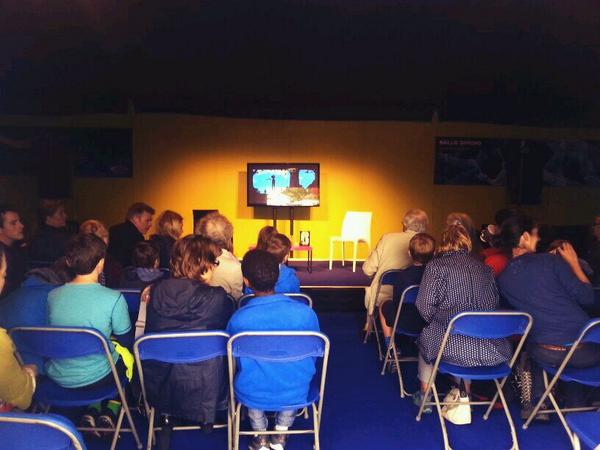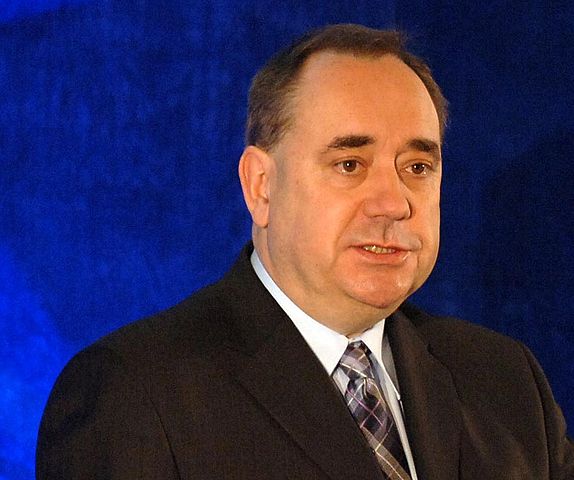On 18 September 2014 Scots will vote on the question, ‘Should Scotland be an independent country?’
Campaigners for independence and campaigners for the union agree that this is an historic referendum. The question suggests a simple choice between different states. This grossly over-simplifies a complex set of issues and fails to take account of a range of other debates that are taking place in Scotland’s ‘constitutional moment’.
Four cross-cutting issues lie behind this referendum. National identity is but one. If it was simply a matter of identity then supporters of independence would be well ahead. But identities do not translate into constitutional preferences (or party political preferences) in straightforward ways. In the 2011 Scottish Parliament elections more people who said they were ‘British and not Scottish’ voted for the Scottish National Party than voted Tory. Scottish identity has survived without a Scottish state and no doubt Britishness will survive without a British state. Nonetheless, the existence of a sense of a Scottish political entity is important in this referendum.
Party politics, and especially the party systems, also play a part in the referendum. Conservative Party weakness – and latterly the weakness of UKIP in Scotland – north of the border has played into the sense that Scotland is politically divergent. This trend was highlighted by William Miller in a book, entitled The End of British Politics?, written more than thirty years ago. It has not been the geographic distance of London from the rest of the UK so much as the perceived ideological distance that has fuelled demands for Scottish autonomy. Polls continue to suggest that more people would be inclined to vote for independence if they thought Mr Cameron and his party were likely to win next year’s general election and elections into the future than if Labour was to win. It is little wonder that Mr Cameron refuses to debate with Mr Salmond.
The dynamics of party politics differ north and south of the border. Each side in the referendum campaign works on the assumption that membership of the EU is in Scotland’s interest, suggesting that Scotland will find itself outside the EU if the other wins while a very different dynamic operates south of the border. Debates in immigration and welfare differ on each side of the border. While there is polling evidence that public attitudes on a range of matters differ only marginally north and south of the border, the much harder evidence from election results, evident in the recent uneven rise of UKIP, suggests something very different.
It is not only that different parties might govern in London and Edinburgh but that the policies pursued differ, the directions of travel are different. In this respect, policy initiatives pursued in the early years of devolution, when Labour and the Liberal Democrats controlled the Scottish Parliament, have fed the sense of divergence. The SNP Government has only added – and then only marginally – to this divergence. The big items that signalled that Holyrood and Westminster were heading in different policy directions were tuition fees and care for the elderly. These were policies supported by all parties in Holyrood, including the then governing Labour Party and Liberal Democrats. There is fear in parts of Scotland that UK Governments will dismantle the welfare state while Scots want to protect it.
The constitutional status of Scotland is now the focus of debate. This is not new nor will the referendum resolve this matter for all time, regardless of the result of the referendum. Each generation has to consider the relationship Scotland has with London, the rest of the UK, and beyond. This is currently a debate about relationships, articulated in terms of whether Scotland should be an independent country. Relationships change as circumstances change. The backdrop to these changing relationships has been the party system, public policy preferences and identities. The role and remit of the state and the nature of Scotland’s economy and society have changed and these changes have an impact on the constitutional debate.
Adding to the complexity has been a development few had anticipated. Both sides to the debate report large turnouts at public meetings, engagement we have not witnessed in a long time with a far wider range of issues arising during Scotland’s constitutional moment than might have been suggested by that simple question to be asked on September 18th. Prospectuses on the kind of Scotland people want are being produced. This revival of political engagement may leave a legacy that reverses a trend that has seen decline in turnout, membership of political parties and civic engagement. That would make this referendum historic.
The post Should Scotland be an independent country? appeared first on OUPblog.

I’ve just returned from Edinburgh on a train packed to the gills with rucksacks, sleeping bags, and the odd piece of bin-bag wrapped set. Yes, it’s festival time and the returning festival-goers include, as they have for the last twenty-two years, me.
I’ve also been a participant this year – talking at the Edinburgh Book Festival, just one of seven festivals that completely take over the Scottish capital every August. At the same time as I was talking to 80 children about The Dark Wild yesterday, Alex Salmond was discussing the referendum next door, and had you struck out in almost any direction from Charlotte Square in search of alternative fare, I guarantee you could have found some event to suit your palate.
 |
| My audience at the Edinburgh Book Festival 2014 |
I wasn’t with my partner on this occasion, who was giving a talk on a forgotten Elizabethan play…at another festival, Wilderness, in Oxfordshire. Wilderness is part of a new crop of ‘boutique’ festivals offering a midsummer’s assortment of revels from hip bands to literary events to Madhatter’s Teaparties. The lakes and Arcadian lawns of Wilderness are a far cry from the cobbles and closes of Edinburgh, although this weekend they shared the same weather.
Earlier this summer we
didgo to the same festival, to the brand new
Curious Arts – a kind of Voewood-on-Sea, in the charming grounds of Pylewell Park, a Regency mansion with a view
from the terrace straight down to the Isle of Wight. You could dance to Ed Harcourt in the evening, listen to Lady Antonia Fraser on the Great Reform Act after breakfast, hunt a Jabberwocky in the Aboretum all afternoon, and finish the day with a gin cocktail leaning over a crumbling balustrade watching ships pass on the Solent.
 |
| Pylewell Park, the setting for the Curious Arts Festival |
All very charming and civilised. But as I returned for the umpteenth time from the granddaddy of all festivals last night – I found myself meditating on the true attraction of such gatherings. What’s the point of a festival?
Let me first declare an interest in this British summer sport. I began my career programming a large theatre on the Edinburgh Fringe,
the Pleasance (of which I am now a Trustee). Each year we have enough shows in enough different rooms to momentarily make us one of the largest arts venues in Europe.
I’ve sat in the sun at Hay and waded through the mud at Latitude. I’ve spoken at a tiny theatre festival that just takes over three floors of one building in Suffolk and a new book festival in Devon which was just a room in a library.
Later this year I’ll be leading a wildlife walk at
Bath Festival and then dashing off to sit on a panel at Cheltenham. You can festival it up from Port Elliot
to Adelaide to Dubai, if you want to.
It would seem that we are at peak Festival, with over 700 events taking place this year classified as one, about 300 of them literary.
As a writer, you will be told many things about festivals, as I know theatre companies, musicians and comedians are told about theirs. You will be told they are essential for profile, that ‘festivals are the new bookshops’ and a great way for connecting with readers.
I don’t wholly dispute those things. Being in a Festival programme, especially an established one, does lift perception of you and your titles. Sales wise I’m less sure – I had a sold out talk at Edinburgh yesterday, in a 75 seat room, and probably sold 20 odd books, which is great - but it’s not the sole reason I went.
You certainly don’t go for the money. Some Festivals, like Bath and Edinburgh offer a token fee, and some like Hay, offer a case of wine and a flower. And as someone involved with the running of a festival venue, I can report that the ever increasing rental, accommodation, promotional, regulatory and staff costs associated with mounting one of these temporary gatherings mean profits are only ever normally found behind the bar rather than the box office.
It’s not cheap for audience members either. Individual events may carry an average ticket price of £8-10 but the travel, accommodation, taxi and food/drink bill means the minimum festival tab comes close to the £100 prices offered by the all inclusive weekend events like Curious Arts, and can be often more - if you visited Edinburgh all week, for example.
Why do we all go and what do we take away?
A dull critic of this pastime might argue that at best audience members take away an empty wallet and often a hangover, and we take away some book sales and inclusion in a programme mailing list.
Of course, all of us are in search of something much more profound.
Festivals may be promoted effectively but I would not place them under the heading of ‘Effective Promotion’ for any artist. There are numerous more sober and less fun ways to do that – just speak to your publisher’s sales and marketing department. But festivals are also fun for them to attend too.
Festivals, especially the summer ones, satisfy a much deeper urge in us to ‘gather.’ Writing, as we all know, can be a damnably lonely business, just you, your ideas and a cold screen all day long. School visits are often hectic and at best your longest conversation with an adult might be five minutes on logistics over a coffee in the staff room.
I think all of us, from writers to actors to comedians to singers to audience members, go to festivals primarily to talk, and to connect. We need our events, sure, we need a reason to gather, our cover story; but the real business of a Festival takes place in the green room, the author’s yurt, the performer’s bar and the pop-up café franchise.
The classic image of a festival is a big tent, and that is the heart of their appeal. Where else can one talk to Archbishop Emeritus Rowan Williams, the Gruffalo and First Minister Salmond all in one room? Even if I chose not to. They are harvest festivals without the back breaking labour (unless perhaps you’re in an acrobatic troupe), weddings for all, and the very best are always tinged with midsummer madness.
 |
| The Gruffalo loses his head at all the excitement in the Edinburgh Author's Yurt |
We gather, we discover, share ideas, news, worries and gossip like crazy. Twitter handles become three dimensional, books expand to reveal the lives behind them, and readers are no longer scary anonymous Amazon commenters.
We might sell the odd book or register with a bookseller who didn’t know us before. All of which is great and worthwhile. But next time your publisher invites you to a festival, don’t worry too much about the fee or whether the sales will be worth it, just gather in the tent (ideally under a super moon) and enjoy the craic.
Piers Torday
@PiersTorday
www.pierstorday.co.uk
If anyone has any memorable Festival experiences, good or bad, do share them below!
By Michael Keating
The Scottish Election of 2011 represents a watershed in Scottish politics. For the first time the Scottish National Party has come convincingly in first place, securing the absolute majority that was supposed to be impossible under proportional representation. Labour, having dominated Scottish politics for over fifty years, suffered a crushing defeat, losing seats even in its industrial heartland of Clydeside. Both of the parties of the ruling coalition of Westminster are reduced to minor players at Holyrood, without even the leverage that small parties enjoyed in the last parliament.
The immediate reason for the SNP triumph is clear; the collapse of the Liberal Democrat vote to less than half the previous level. What is less clear is why these voters should shift to the SNP and not to Labour. The answer lies in the changed nature of Scottish politics and the failure of Labour to adapt. They seemed to think that this was a ‘second order election’, in which voters use the opportunity to reward or punish the central government, irrespective of the local issues at play. Doubtless this was influenced by their good performance in Scotland in the UK election last year. So Ed Miliband and Ed Balls arrived in Scotland to tell electors that this was a chance to send a message to David Cameron and the coalition in London. This was not, however, a UK election and Scottish voters have learned the difference, being prepared to vote one way for Westminster and another way for Holyrood. Three of the four main parties in Scotland represent varieties of social democracy, so they have plenty of choice and nobody can take their votes for granted. Add to this the greater pulling power of Alex Salmond and the rather unplayed SNP message that they have done quite well in office (‘nae bad’ in Salmond’s words) and the campaign became quite one-sided. In the course of a six-week campaign, a Labour lead of 13 per cent, carried over from the UK election, was transformed into an advantage of nearly 20 per cent for the SNP.
If the result of the election is clear, its consequences are much less so. The SNP commands the political landscape, with support across all parts of the country and all sections of society, but has still to decide exactly what sort of party it is. Its policy prospectus combines support for more universal services with tax cuts for business in an impossible combination. Its social democratic and neo-liberal wings have lived so far in harmony, but there are now hard budgetary choices to be made.
Similarly, on the constitution, there is a historic division between fundamentalists, who want independence tomorrow, and gradualists, many of whom would settle for stronger devolution or some kind of confederal arrangement. Since the victory of 2007 there has been a truce between them, made easier by the fact that the party lacked the parliamentary majority to bring an independence referendum about. The present strategy is to pursue both strands. The SNP have already stated their demands for more tax powers, beyond those in the Scotland Bill currently before Parliament, control of the Crown Estate, and higher borrowing limits. At the same time, a referendum is promised in the latter part of the Parliament’s five-year term.
The UK government has already indicated that it will not make an issue of the legality of a referendum but will fight hard on the matter of independence. The SNP, for its part, has to define just what independence means. In the past I have argued that this is by no means an easy question in modern Europe, where many nationalist parties have adopted a ‘post-soverei





